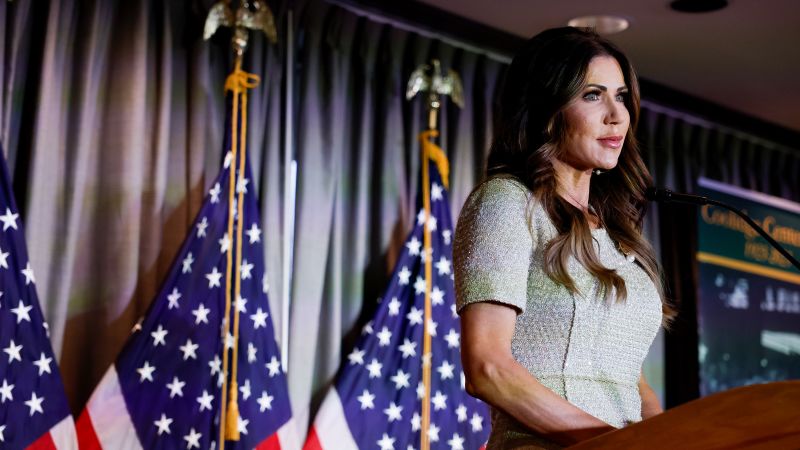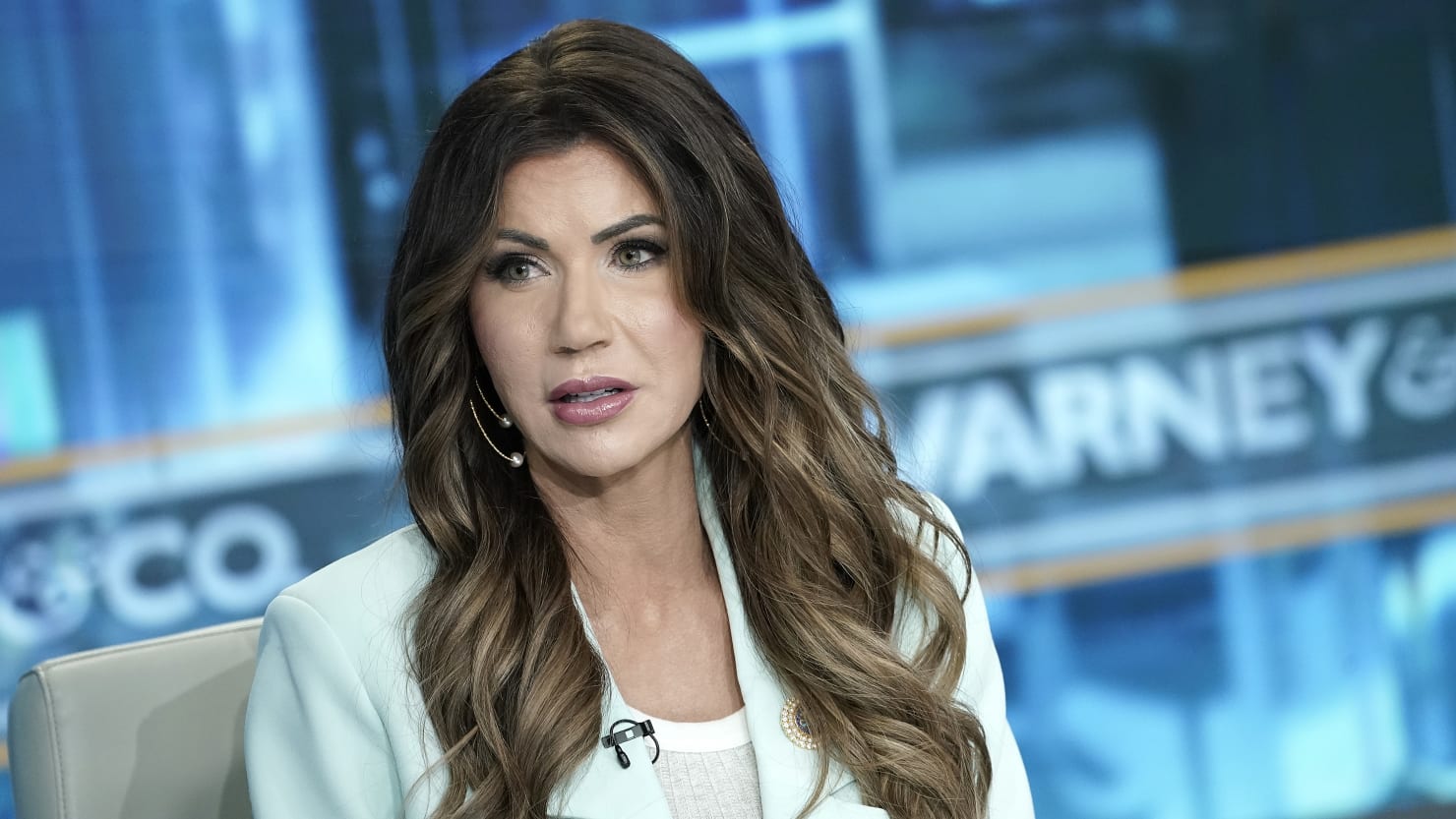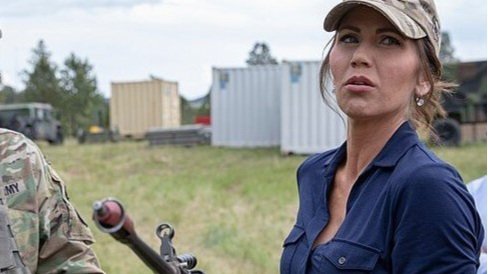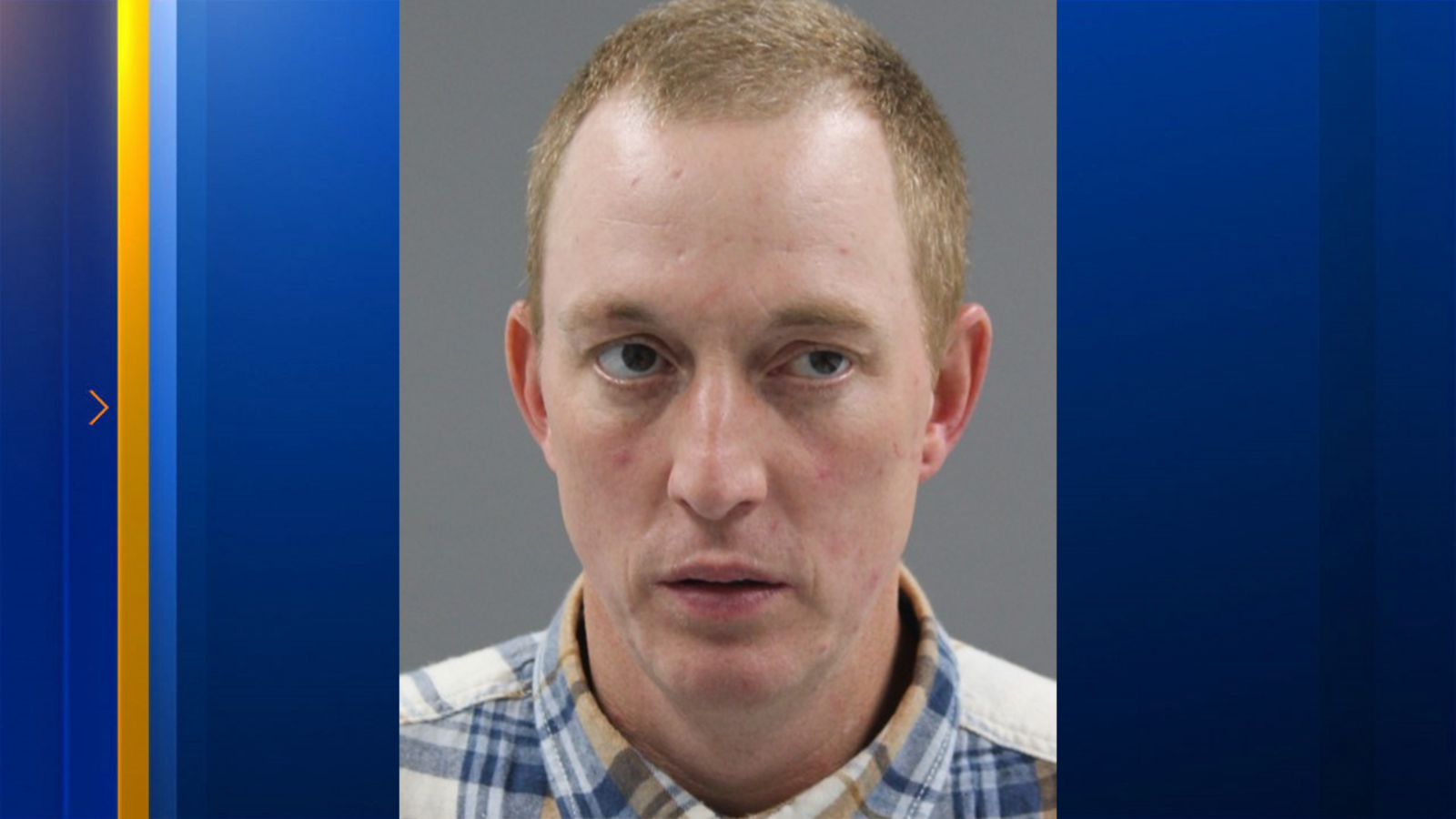South Dakota
Magazine correspondent reacts to South Dakota Governor’s ‘strange’ video | CNN Politics

Magazine correspondent reacts to South Dakota Governor’s ‘strange’ video
South Dakota Gov. Kristi Noem is facing legal action after posting a 5-minute infomercial-style video online praising the dental work she received at Smile Texas, a Houston-area cosmetic dentistry firm.

South Dakota
Kristi Noem Made Yet Another False Claim in Her Book

Kristi Noem just can’t get her facts straight. After a flopped press tour for her new book—where she confronted questions over anecdotes on meeting North Korean ruler Kim Jong Un (she didn’t) and killing her dog (she did)—Noem also falsely claimed in her book that Sen. Mike Rounds (R-SD) called for former President Donald Trump to drop out in 2016. Noem claimed that Rounds and the “entire delegation in South Dakota was not supportive of Trump” after the Access Hollywood tape came out. “Every one of the Republicans called for Trump to drop out of the race, which meant they believed Hillary Clinton should be the next president. Amazing, right?” she wrote. But Rounds’ camp is contesting this. “We have not read the book, but someone pointed out that among the inaccuracies, there was one that referenced Sen. Rounds,” Rounds spokeswoman Lydia Hall told The Dakota Scout. “We’ve asked the publisher to correct that error in their next revision and they confirmed that they are making the correction after reviewing the facts.”
Read it at The Dakota Scout
South Dakota
Survey says nearly two-thirds of SD educators use Indigenous standards • South Dakota Searchlight

Survey results indicate nearly two-thirds of South Dakota public school educators are teaching the Oceti Sakowin Essential Understandings, but the number of respondents is lower than the last survey.
The essential understandings are a set of standards approved in 2018 for teaching students about Native American culture and history. “Oceti Sakowin” is the collective term for Lakota, Dakota and Nakota speaking Native Americans, many of whom live in South Dakota. There are nine tribal nations within the state.
About 62% of teachers are using the standards, based on a survey conducted by the state Department of Education in 2023 — a “remarkable increase” from 45% in 2021, said Fred Osborn, director of the Office of Indian Education, which is under the supervision of the state Department of Tribal Relations. He presented the survey results to the Indian Education Advisory Council earlier this month.
Use of the standards is optional. The survey is used to understand how the standards are being implemented, and to help state officials encourage statewide adoption.
“The key is there’s improvement,” Osborn said. “It’s not perfect yet. There’s still work to be done, but we’ve come a long way from 45% of teachers. We hope that increases every year.”
Osborn added that the Office of Indian Education provided 10,000 copies of books on the Oceti Sakowin Essential Understandings through a Bush Foundation grant since the first survey, and sent out education packets for all grade levels last fall.
Fewer survey responses
Only about 385 educators took part in the 2023 survey, compared to 554 in 2021.
The 2023 survey also does not list how many public school districts were represented in the survey, whereas 2021’s survey had responses from 125 of the state’s 149 school districts. The school district identification question was changed between 2021 and 2023, said department spokesperson Nancy Van Der Weide. The department does not have any data to determine how many school districts were represented in the latest survey.
Removing the school district identification question allowed participants more anonymity, Van Der Weide told South Dakota Searchlight.
Navajo leaders outraged after a Lakota student’s tribal regalia was removed at graduation
Neither Osborn nor any members of the council addressed the potential impact of fewer responses on the validity of the survey results. The survey was voluntary and available for one month, Van Der Weide said, with a notice placed in a newsletter sent to teachers throughout the state.
“Those educators who did respond provided informed recommendations,” Van Der Weide said in an emailed statement. “Some of those were educators who already incorporate a lot of OSEUs in their classrooms, while others were those who wanted to make them a part of their instruction and responded with ideas for tools that would help them to incorporate the standards into their classrooms.”
Advisory council member Sherry Johnson, tribal education director for the Sisseton Wahpeton Oyate, helped shaped the standards and is participating in the standards update. She doubts the survey is an accurate representation of how the standards are being used in the state.
“We have pockets of the state that are doing well, but it’s not pervasive. It’s not required,” Johnson said. “If nothing else, there should be direct teacher training and a mandate to have this Indian education for all.”
Megan Deal, a second-grade teacher in Pierre and a member of the advisory council, said her school participated in a pilot program to help create lesson plans for standards at each grade level, but not all teachers incorporated the teachings into their classrooms.
“I don’t think they’re being taught at very many schools around the state at this time,” Deal said.
Council member Brian Wagner, tribal education director with the Lower Brule Sioux Tribe, said he is concerned about the lack of “teeth” with the standards. Lawmakers have introduced bills to require use of the Oceti Sakowin Essential Understandings in classrooms, but those efforts have failed in the Legislature.
“Knowledge is power,” Wagner said. “If people don’t learn about history, then we risk repeating it, and unfortunately the history repeating would be the racism and the discrimination that many tribal members have experienced because people don’t understand tribal sovereignty or the treaties and the treaty rights.”
Impact expected from social studies standards
Though the standards are optional, said Secretary of South Dakota Department of Education Joseph Graves, the new social studies standards that will be implemented by 2025 will include references to the Oceti Sakowin Essential Understandings. Those will encourage more teachers to use the cultural standards, he said.
“We’re going to find more Native American history and culture being taught in the schools than ever before,” Graves said. “This is actually a move forward, not a move back. I think the social studies standards have gotten an unfair black eye, and I think once you see these in place you’ll find we’re teaching more of it rather than less and, I think, from an enlightened perspective.”
States were adding lessons about Native American history. Then came the anti-CRT movement
The social studies standards controversy started in 2021 because the department removed more than a dozen references to the Oceti Sakowin from a committee’s draft revision of social studies standards. After Gov. Kristi Noem formed a new work group and ordered the process to start over, the group produced standards that drew criticism for an emphasis on rote memorization over inquiry-based learning.
Graves added that the department plans to provide teachers with weekly materials to help them utilize the social studies standards and encourage them to use the Oceti Sakowin Essential Understandings.
According to the 2023 survey results, about 84% of educators said they were aware of the standards, and 77% said it is important to implement the standards in every classroom. Only 55% of teachers said they knew the concepts well enough to teach them, but that was an 18 point increase from 2021.
Nearly 40 administrators took part in their administrator survey in 2023, compared to 164 in 2021. The 2023 survey does not list how many public school districts were represented in the administrator survey.
Nearly 80% of administrators said it’s important to implement the standards in every classroom, but two-thirds of administrators indicated a lack of confidence to implement the standards in their schools, while 56% reported an uncertainty about how to integrate the standards and 44% cited a concern for the appropriateness of the content — an increase of 28 points from the 2021 survey.
The survey does not address how using the standards affects Native American student achievement, but Osborn said it would be “interesting to cross analyze” that.
GET THE MORNING HEADLINES DELIVERED TO YOUR INBOX
South Dakota
Noem’s trip to the border a distraction from real South Dakota problems, says SDDP chair Dan Ahlers — The South Dakota Standard

Gov. Kristi Noem once again delivered a fearmongering speech about the U.S.-Mexico border instead of finding solutions for problems in South Dakota.
Noem continues to claim that cartels are operating on reservations for drug and human trafficking. When questioned, she acknowledges drugs and human trafficking are happening throughout South Dakota and this country. So why is she only focusing on the tribes?
South Dakota should be working with tribal leadership and providing more resources for drug prevention and rehabilitation programs as well as organizations that help victims of human trafficking.
The governor also said tribal leaders need to “stop focusing on politics and banishing me and bring me solutions.” That is a two-way street. Noem has a long history of showing disrespect for Native Tribes in South Dakota. Her administration needs to put in the work to improve relationships with each of the Tribal Nations. Good leadership doesn’t hurl attacks; it finds solutions.
South Dakotans should be encouraged by the new basic law enforcement certification course for tribal police recruits this summer. This is a step in the right direction in the hope of more law enforcement officers on reservations to help with the public safety issues.
Noem (seen above in public domain photo on a 2019 visit to American troops posted in wikimedia commons) also continues to allege that there is an “infiltration” and “invasion” at the southern border. If she truly wanted to find a solution to the border crisis, she would have urged US Senators John Thune and Mike Rounds as well as US Representative Dusty Johnson to support the bipartisan immigration bill. While it was not perfect, it addressed concerns by both political parties. Instead, they all fell in line with former President Donald Trump and killed real, meaningful immigration reform.
The only purpose for this news conference is to distract from the bad press she’s receiving nationally due to stories of killing her dog and inaccuracies in her book like meeting North Korean leader Kim Jong Un. The focus should be on the real challenges of South Dakota families.
Many families across the state can’t afford child care. Families sit on waiting lists because there are not enough daycare employees and providers. South Dakota is also dealing with a shortage of affordable and workforce housing. Meanwhile, the Governor recruits people from places like California who are driving up the cost of housing and our property taxes. And while Gov. Noem is vilifying people who are crossing the southern border, South Dakota is actually in need of migrants to fix our labor shortage.
Noem continues to show that she is more concerned about her national image than effectively governing South Dakota.
Dan Ahlers of Dell Rapids is the chairman of the South Dakota Democratic Party. Contact him at dan@sddp.org or contact the state party office by phone at 605-271-5405 or 605-940-3071.
-

 World1 week ago
World1 week agoIndia Lok Sabha election 2024 Phase 4: Who votes and what’s at stake?
-

 News1 week ago
News1 week agoSkeletal remains found almost 40 years ago identified as woman who disappeared in 1968
-

 Politics1 week ago
Politics1 week agoUS Border Patrol agents come under fire in 'use of force' while working southern border
-

 Politics1 week ago
Politics1 week agoTales from the trail: The blue states Trump eyes to turn red in November
-

 World1 week ago
World1 week agoBorrell: Spain, Ireland and others could recognise Palestine on 21 May
-

 World1 week ago
World1 week agoCatalans vote in crucial regional election for the separatist movement
-

 World1 week ago
World1 week agoEurope matters to consumers, and so does your vote
-

 Politics1 week ago
Politics1 week agoNorth Dakota gov, former presidential candidate Doug Burgum front and center at Trump New Jersey rally
















